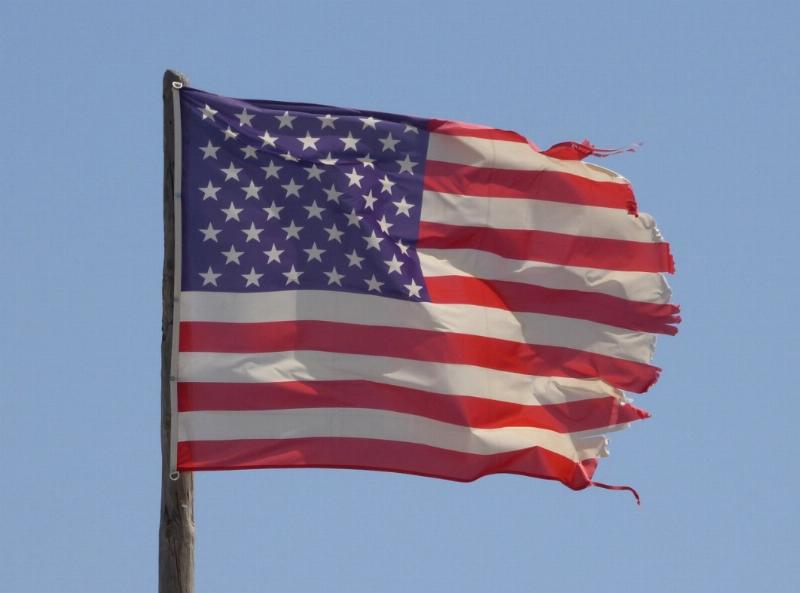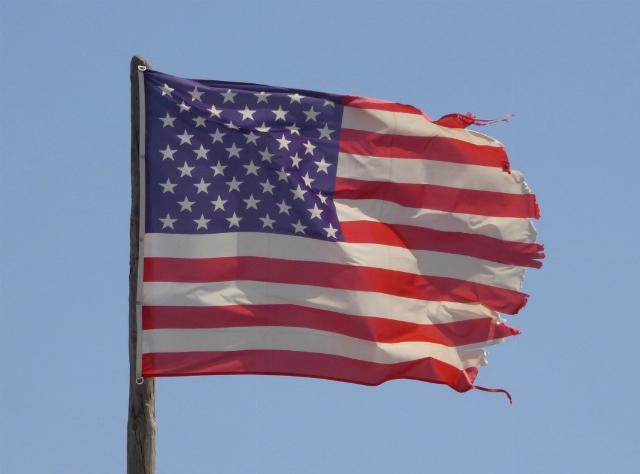


On August 25, 2025, President Trump signed a controversial executive order.
One could argue that every one of Trump’s orders is controversial, but I mean controversy with the MAGA world, among conservatives.
He declared that burning the American flag would be punishable by up to one year in jail.
Trump mastered corporate media again. He put out a blanket statement that overwhelmed the left, triggering their outrage. But the precise executive order is sensible and enforcement-based, and it works within legal precedent and legislative standards. The angel is in the details.
Here are the key portions worth analyzing (since too many pundits, left and right, want to complain based on the headline only):
Notwithstanding the Supreme Court’s rulings on First Amendment protections, the Court has never held that American Flag desecration conducted in a manner that is likely to incite imminent lawless action or that is an action amounting to “fighting words” is constitutionally protected. See Texas v. Johnson, 491 U.S. 397, 408-10 (1989).
The issue is incitement. That is a legitimate concern. Brandenberg v. Ohio is the more germane Supreme Court case affirming this position, which held that speech advocating immediate and imminent violence is subject to sanction.
No one wants to live in a country where willful destruction of property leads to wanton violence and destruction. These outbreaks have become all too common in Democrat-run inner cities as well as throughout Washington, D.C.
The executive order doubles down on the lead-up to violence provisions:
My Administration will act to restore respect and sanctity to the American Flag and prosecute those who incite violence or otherwise violate our laws while desecrating this symbol of our country.
Putting aside Supreme Court precedent and widespread legal, judicial, and even cultural norms that defend the desecration of our flag, the flag-burning controversy deserves renewed attention.
The American flag is not just a symbol of the United States government. It is a symbol of all our people. We are in unprecedented times, enduring warfare against our nation’s creed, culture, and very character. We should not lightly or blithely tolerate such dishonor to our national emblem. The president should be commended for defending and restoring honor to every American tradition and emblem.
His opposition to the abuse of our national flag is not unique. Many countries have stricter regulations regarding the treatment of their national banner. Singapore recently enhanced penalties for such acts. Germany criminalizes the desecration of foreign emblems, too.
However, those countries don’t have a legacy of freedom, and freedom of speech is stringently curtailed. Should America limit freedoms to protect the Stars and Stripes? In 2006, the United States Senate almost passed a constitutional amendment to protect the American flag. It failed by one vote: liberal Republican Lincoln Chafee of Rhode Island.
One could defend criminalizing flag-burning from a responsibility perspective, too. If someone wants to engage in the civil disobedience of desecrating the flag, fine, but part of civil disobedience is suffering the consequences. Vietnam War draft-dodgers burned their draft cards to protest their forced call to arms. Should they have gone to jail? Mr. Conservative (Libertarian) U.S. senator Barry Goldwater of Arizona was appalled when President Jimmy Carter issued a blanket pardon for all draft-dodgers. Of course, Goldwater’s opposition stemmed from the action of the draft-dodgers, not the actual burning of their cards.
Where does one draw the line when it comes to flag-burning?
If it’s illegal to desecrate the American flag, what happens if someone burns a printed copy of the flag, or simply throws it in the trash? Do we send that person to jail? Drawing a golden line invites more problems than it solves. Furthermore, ordering citizens to respect the flag does not mean they will honor the country. They will act like petulant children told to sit down and be quiet. Many of them will quietly rebut, “Okay, I won’t burn the flag, but inside my mind, I am torching the colors!”
I don’t think we need to pass an amendment criminalizing flag-burning. Even über-leftist Charlamagne tha God finds flag-burning despicable, so that gives me hope that even the liberals in our nation have not become so deranged that they would destroy our beloved banner.
If we want to restore love and respect for our country, we need to reform the institutions that have been teaching future generations to hate our country.
College campuses are notorious for flag-burning, but who is doing most of the desecration?
And that brings me to the strongest provisions of the executive order:
The Secretary of State shall deny, prohibit, terminate, or revoke visas, residence permits, naturalization proceedings ... whenever there has been an appropriate determination that foreign nationals have engaged in American Flag–desecration activity under circumstances that permit the exercise of such remedies pursuant to Federal law.
Whether you have a tourist visa, a student visa, or an H-1B, if you burn our flag, you burn your opportunity to live and work here. There is no right to visit any nation, especially the United States. If you are an immigrant, you have to act like a guest (thank you, Gov. Schwarzenegger!), with respect, dignity, and honor for the host country and its citizens. It’s stunning that so many Americans (left and right) are defending anti-American demonstrations on college campuses from foreign nationals, including the “Palestinian” riots masquerading as protests. We give them an opportunity, and they spit in our face, burning our flag!
Foreign nationals visiting our communities, working in our businesses, or studying in our universities should honor this country, even kissing the ground they walk on. It is a privilege to be in the United States. If foreigners feel so aggrieved and entitled to burn our national emblem, deport them! I cannot believe that previous presidents have not issued similar directives.
We should not ban flag-burning per se, but law enforcement must act to prevent incitement from citizens and insolence from foreigners. I approve of President Trump’s “controversial” executive order.

Image: Pashi via Pixabay, Pixabay License.
